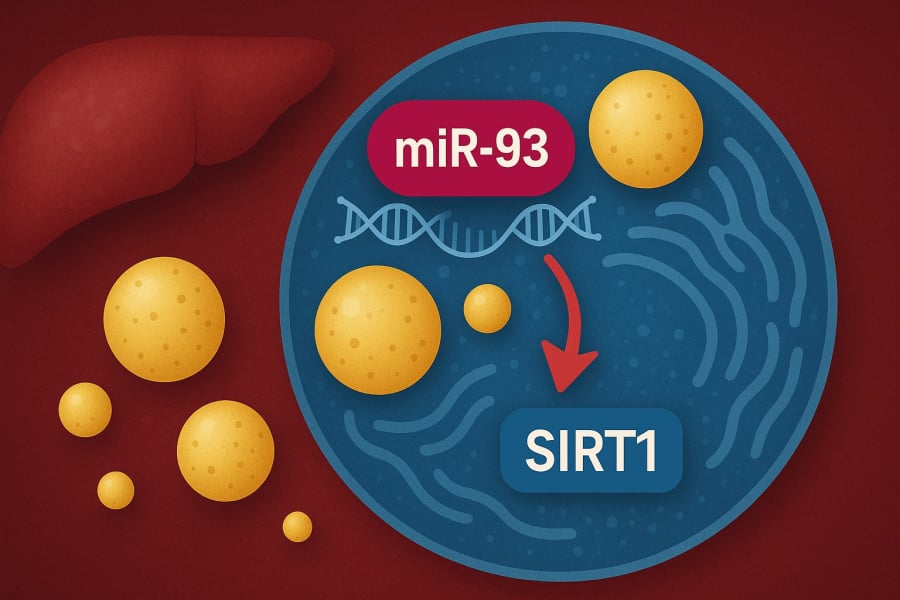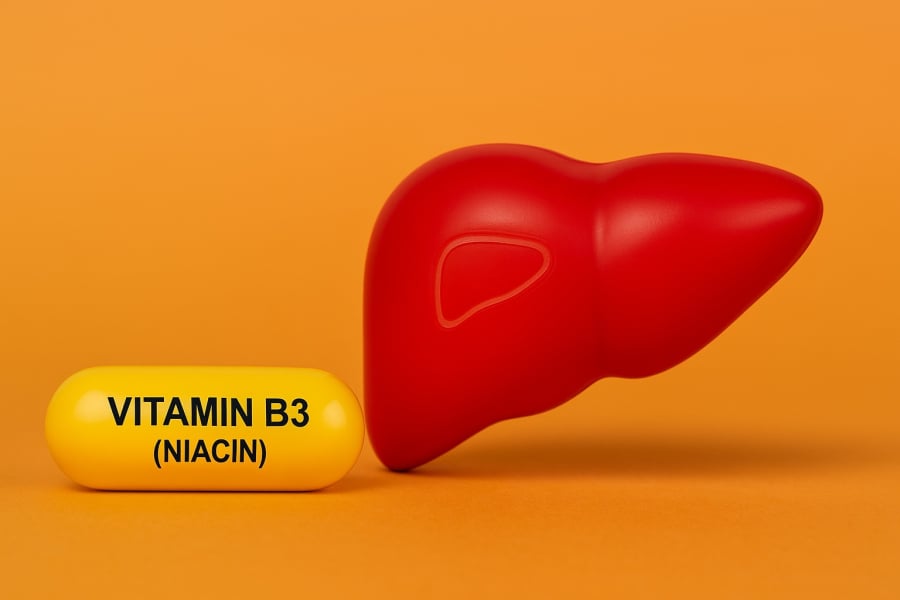## A Breakthrough Discovery from the Laboratory
A Silent Killer Unveiled
Non-alcoholic fatty liver disease, or MAFLD for short, has long been dubbed a “silent killer.” The disease progresses insidiously without obvious symptoms, but its consequences can be dire: from liver inflammation and fibrosis to liver cancer.
While modern medicine has been scrambling for a specific treatment, a recent study from the Ulsan National Institute of Science and Technology (UNIST) in South Korea has opened a door of hope. And surprisingly, the potential key lies in vitamin B3 (niacin), a common dietary supplement.

From a Dangerous Gene to the “Antidote”: Niacin
Scientists discovered that in MAFLD patients and a mouse model of the disease, there was an abnormal increase in a genetic factor called miR-93. This factor promotes fat accumulation in the liver and causes inflammation and fibrosis by inhibiting the SIRT1 gene, which plays a pivotal role in liver fat metabolism.
When the researchers used gene-editing techniques to suppress miR-93, they observed a significant reduction in liver fat, improved liver function, and enhanced insulin sensitivity. However, the most surprising finding came from a screen of 150 FDA-approved drugs.
Vitamin B3, also known as niacin, was identified as the most effective compound in inhibiting miR-93. Treated mice showed a substantial decrease in miR-93 levels in the liver, and the SIRT1 gene was reactivated, restoring liver fat metabolism.

New Hope for Millions
Fortunately, vitamin B3 has long been safely used to treat dyslipidemia and is readily available over the counter as a dietary supplement. This discovery not only offers a new direction in treating MAFLD but also accelerates its potential clinical application, as niacin has already passed safety approval hurdles.
According to the research team, these findings not only elucidate the biological mechanism behind fatty liver disease but also reveal the potential of using a familiar vitamin in treatment, which was previously unforeseen despite its widespread clinical use (Medical Express).
As shared by ThS.BS Nguyen Thi Thuy Trang from the Ho Chi Minh City Nutrition Center, “Fatty liver often goes unnoticed due to a lack of symptoms. However, if left untreated, it can progress to liver inflammation, fibrosis, and cancer” (ZingNews).
A Word of Caution: Consult a Doctor Before Taking Supplements
While niacin holds great potential in treating fatty liver disease, it should not be taken in high doses without medical supervision, especially for individuals with underlying conditions such as diabetes, gout, or chronic liver disease.
Doctor Nguyen Trong Hung from the National Institute of Nutrition cautions that vitamin B3 should not be used arbitrarily. Instead, specific dosage instructions are necessary to ensure patient safety. “Overdosing can lead to side effects such as facial flushing, skin redness, and even liver damage, which is ironic for those aiming to heal their livers.”
Take Action Starting Today
There’s no denying that the discovery of vitamin B3’s potential sheds new light on treating fatty liver disease. However, prevention is still better than cure.
Unveiling the 5 Familiar Food Groups That Harm Your Liver: A Surprising Revelation
The liver is a vital organ that is susceptible to damage from various familiar foods we consume. This introduction paragraph aims to intrigue readers by highlighting the potential dangers lurking in their diets and offering a solution to protect their livers. It teases an informative article that will reveal the top five harmful food groups and provide effective strategies to safeguard liver health.
The Skincare Ingredient That Cleared Hà Tăng’s Sister-in-Law’s Skin of Pigmentation, Leaving It Firm and Smooth.
With a flawless complexion and a radiant glow, Linh Rin, the sister-in-law of renowned actress Tăng Thanh Hà, has become a testament to the power of proper skincare and cosmetic safety. Her secret lies in a diligent routine and a trusted arsenal of skincare products that work in harmony to achieve remarkable results. Discover the journey of how she attained her clear and youthful skin, free from blemishes and filled with a vibrant, healthy radiance.





































